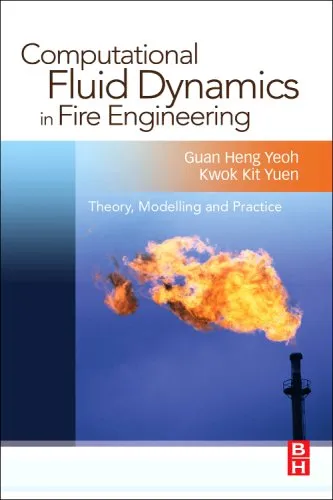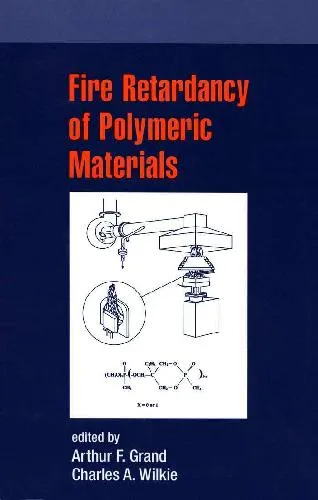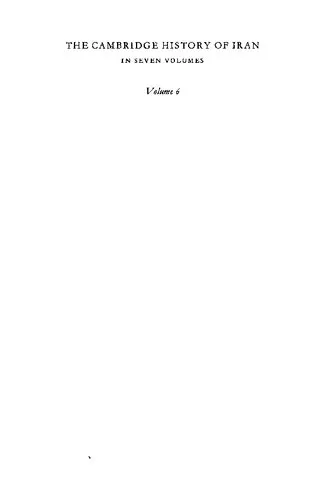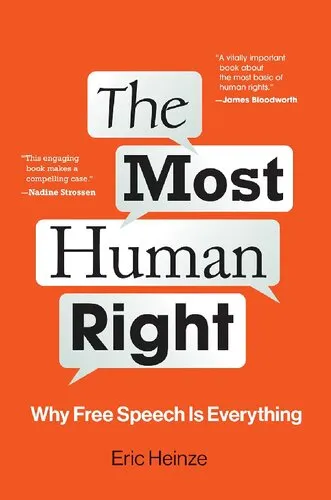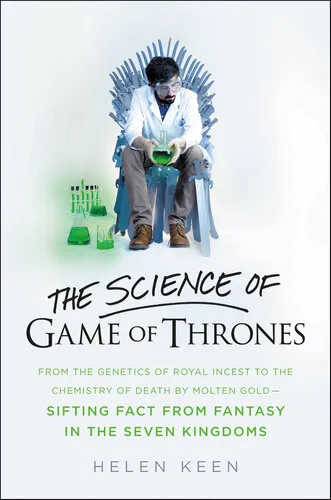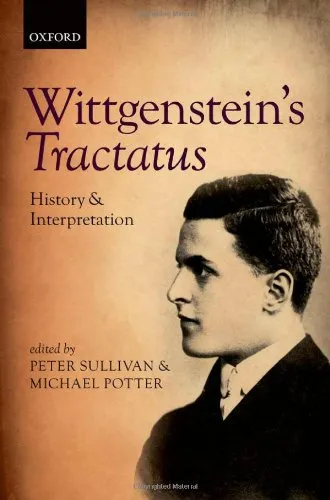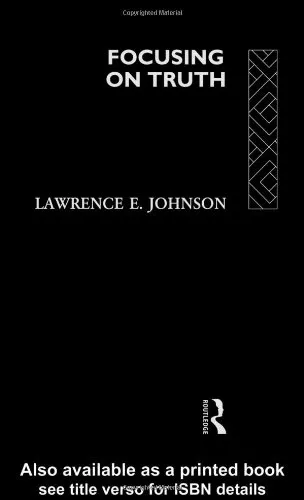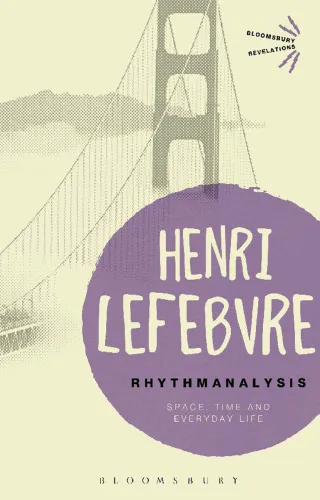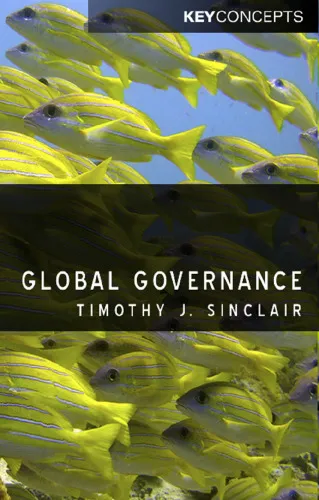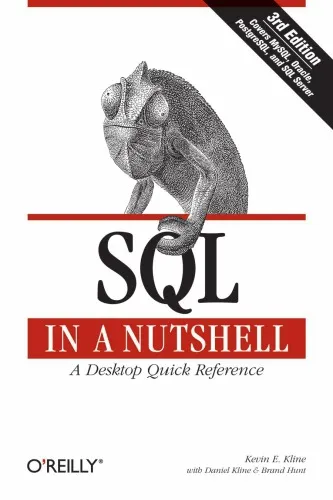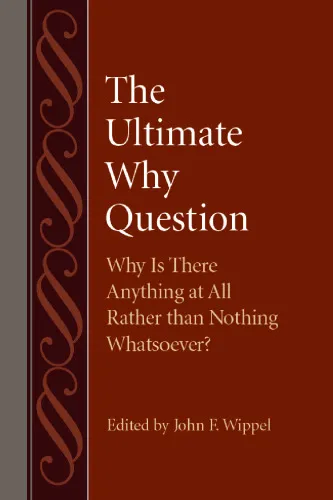Common Knowledge
4.5
بر اساس نظر کاربران

شما میتونید سوالاتتون در باره کتاب رو از هوش مصنوعیش بعد از ورود بپرسید
هر دانلود یا پرسش از هوش مصنوعی 2 امتیاز لازم دارد، برای بدست آوردن امتیاز رایگان، به صفحه ی راهنمای امتیازات سر بزنید و یک سری کار ارزشمند انجام بدینکتاب های مرتبط:
خلاصه تحلیلی کتاب
کتاب Common Knowledgepp.61—81 اثر Tihanov, G. بخشی از مجموعهای گستردهتر است که در آن نویسنده به بررسی ابعاد نظری و عملی مفهوم «دانش مشترک» میپردازد. این بخش خاص، از صفحه ۶۱ تا ۸۱، دربردارنده چندین بحث عمیق پیرامون نحوه شکلگیری، انتقال و مشروعیتبخشی به دانش در حوزههای فرهنگی و فلسفی است.
نویسنده با رویکردی دقیق و انتقادی، پرسشهایی را مطرح میکند که به قلب فلسفه میانرشتهای میزند؛ از جمله اینکه چگونه پراگماتیسم فرهنگی میتواند پیوند میان رشتههای متنوع را برقرار کند و در عین حال به نیازهای عملی جوامع پاسخ بدهد.
با بهرهگیری از مثالهای تاریخی و تحلیلهای نظری، این بخش کتاب خواننده را به فراتر از برداشتهای سنتی میبرد و او را مجبور میکند که دوباره مفهوم «دانش مشترک» را بازبینی کند.
نکات کلیدی و کاربردی
یکی از نکات برجسته کتاب، تأکید بر نقش تعامل و گفتوگوی مداوم در شکلگیری و بهروزرسانی دانش مشترک است. این تأکید نه تنها جنبه فلسفی دارد بلکه در محیطهای دانشگاهی و پژوهشی نیز به شدت کاربردی است.
کتاب نشان میدهد که پراگماتیسم فرهنگی، هنگامی که بهطور هوشمندانه به کار گرفته شود، میتواند شکاف میان نظریه و عمل را پر کند؛ بهویژه در حوزههایی که نیاز به همکاری میانرشتهای دارند.
مزیت دیگر متن در این است که با زبان شفاف و در عین حال دقیق، مخاطب را در فهم مفاهیم پیچیده یاری میکند؛ بدون اینکه سطح تحلیل را پایین بیاورد.
این بخش برای پژوهشگران منبعی الهامبخش است تا رویکردهای خود را بازاندیشی کنند و در پروژههای علمی آینده، بر پایه گفتوگوی مستمر و ارزشهای مشترک حرکت کنند.
نقلقولهای ماندگار
بخش Common Knowledgepp.61—81 حاوی جملاتی است که تا مدتها در ذهن خواننده باقی میمانند، زیرا عمق فلسفی و نگاه نقادانه آنها باعث ایجاد ارتباطی شخصی با مخاطب میشود.
«دانش مشترک نه یک میراث ثابت، بلکه فرایندی پویا و باز است که در تعامل روزمره ساخته و بازساخته میشود.» نامشخص
«پراگماتیسم فرهنگی، پلی است میان عینیت تاریخی و نیازهای معاصر ما.» نامشخص
چرا این کتاب اهمیت دارد
اهمیت این کتاب در آن است که با وجود تمرکز بر بخش محدودی از مجموعه، توانسته است پرسشهای ژرفی را مطرح کند که پاسخ به آنها مسیر مطالعات فرهنگی و فلسفی را دگرگون میکند.
اثر Tihanov با بازاندیشی در مفهوم دانش مشترک، به پژوهشگران و دانشجویان یادآوری میکند که تعامل، گفتوگو و نقد سازنده اجزای حیاتی هر فرایند علمی هستند. این یادآوری در عصری که اطلاعات و نظریهها به سرعت گسترش مییابند، ارزش دوچندان دارد.
همچنین این کتاب به عنوان یک منبع پژوهشی معتبر، دسترسی به فهم عمیقتر پراگماتیسم فرهنگی را فراهم میکند، مفهومی که برای علوم انسانی و اجتماعی حیاتی است.
نتیجهگیری الهامبخش
مطالعه Common Knowledgepp.61—81 فرصتی استثنایی برای بازاندیشی در شیوهای که دانش را درک و منتقل میکنیم. این کتاب با ارائه بینشهای دقیق، خواننده را به ضرورت گفتوگو، نقد مستمر و پذیرش تنوع دیدگاهها ترغیب میکند.
پژوهشگران، کتابخوانهای جدی و هر فرد علاقهمند به فلسفه و فرهنگ می
Analytical Summary
The section entitled Common Knowledgepp.61—81 represents a crucial passage in which broader frameworks of cultural exchange, intellectual history, and comparative literature converge in high-resolution analysis. This portion of the work delves deeply into the mechanics of how concepts, traditions, and scholarly paradigms circulate across temporal and spatial boundaries, shaping the collective repository we call "common knowledge."
Building on established methods in cultural theory, the discussions here illuminate the processes by which academic discourse not only reflects but actively transforms society’s shared understandings. The interplay between cross-cultural dialogues and scholarly canons is brought into the open — offering academics, researchers, and engaged professionals a rewarding insight into the intellectual scaffolding of modern thought.
Information about the precise date of publication for this section is unavailable, as no reliable public source specifies it independently from the full work. Nonetheless, its thematic relevance endures, reflecting ongoing debates about the role of comparative approaches in knowledge formation.
Key Takeaways
Readers who immerse themselves in Common Knowledgepp.61—81 will encounter a structured exploration of thematic intersections where comparative literature meets cultural theory. This section offers nuanced perspectives that reward close reading and critical reflection.
One takeaway is the recognition that "common knowledge" is neither neutral nor static; it is shaped by layers of historical context and cultural negotiation. Another is an appreciation for the methodological rigor required to trace intellectual exchanges across linguistic and national boundaries. Finally, it underscores the necessity of maintaining a critical awareness of how academic dialogue frames, limits, or expands public understanding.
Memorable Quotes
Within Common Knowledgepp.61—81, several passages resonate as compact expressions of its broader thematic intent, even absent full context.
“Common knowledge must be continually renegotiated; it is never merely inherited intact.” Unknown
“In comparative literature, every text converses in more than one tongue, whether we acknowledge it or not.” Unknown
“Cultural theory requires that we listen not only to the loudest voices but to the silences in between.” Unknown
Why This Book Matters
The significance of Common Knowledgepp.61—81 lies in its ability to synthesize dense theoretical content into reflections that transcend disciplinary boundaries.
For scholars in comparative literature, this section demonstrates the necessity of engaging with cultural theory as a means to unlock deeper interpretive capacities. For cultural theorists, it models how disciplined literary inquiry enriches theoretical reflection. Professionals and students alike will find that this work affirms the value of interdisciplinary engagement in both academic and public spheres.
Inspiring Conclusion
In revisiting Common Knowledgepp.61—81, readers are invited to reflect on how collective intellectual inheritances are crafted, sustained, and challenged. The dialogue between comparative literature and cultural theory in this section is not merely academic — it is a mirror of broader societal processes shaping shared understanding.
Whether you are an academic aiming to deepen your methodological toolkit, a professional engaging with cultural narratives, or a thoughtful reader attuned to the undercurrents of intellectual history, the call is clear: read, share, and discuss the insights contained in Common Knowledgepp.61—81. In doing so, you participate in the continuing negotiation of what society knows, values, and chooses to remember.
دانلود رایگان مستقیم
شما میتونید سوالاتتون در باره کتاب رو از هوش مصنوعیش بعد از ورود بپرسید
دسترسی به کتابها از طریق پلتفرمهای قانونی و کتابخانههای عمومی نه تنها از حقوق نویسندگان و ناشران حمایت میکند، بلکه به پایداری فرهنگ کتابخوانی نیز کمک میرساند. پیش از دانلود، لحظهای به بررسی این گزینهها فکر کنید.
این کتاب رو در پلتفرم های دیگه ببینید
WorldCat به شما کمک میکنه تا کتاب ها رو در کتابخانه های سراسر دنیا پیدا کنید
امتیازها، نظرات تخصصی و صحبت ها درباره کتاب را در Goodreads ببینید
کتابهای کمیاب یا دست دوم را در AbeBooks پیدا کنید و بخرید


